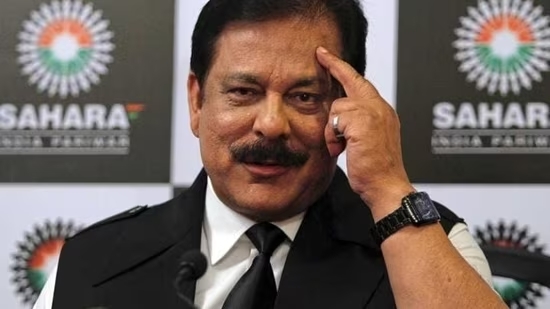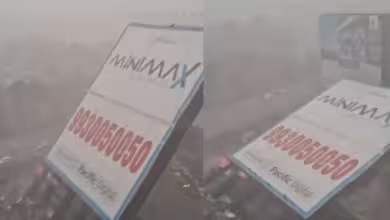Sahara Group Chairman Subrata Roy passes away, leaving behind legacy of entrepreneurial triumphs and legal turmoil
According to the Sahara Group's official statement, he succumbed to cardiorespiratory arrest after battling complications from metastatic malignancy, hypertension, and diabetes.

Business magnate Subrata Roy, Chairman of the Sahara Group, breathed his last on November 14, 2023, at 10:30 pm. According to the Sahara Group’s official statement, he succumbed to cardiorespiratory arrest after battling complications from metastatic malignancy, hypertension, and diabetes. His health had been deteriorating, leading to his admission to the Kokilaben Dhirubhai Ambani Hospital & Medical Research Institute on November 12, 2023.
Subrata Roy was born in 1948 in Araria, Bihar, to a wealthy family from Dhaka, East Bengal, which became part of East Pakistan (later Bangladesh) after Partition. After completing his education at Kolkata’s Holy Child Institute, he pursued mechanical engineering at the Government Technical Institute, Gorakhpur. His entrepreneurial journey began in 1978 with a modest sum of Rs. 2,000.
Genesis of Sahara Group:
Roy entered the scene by joining Sahara Finance in 1976, a struggling company primarily involved in chit funds. Taking over the company in 1978, he transformed its financial model, turning it into a residuary non-banking company (RNBC) that accepted small savings. In the early days, Roy personally collected funds, even riding scooters to reach investors. Over the years, Sahara Group evolved into a diversified conglomerate, owning airlines, a Formula One team, a cricket team, luxury hotels, and financial companies.
At its zenith, the Sahara Group was considered the second-largest employer in India, trailing only Indian Railways. However, this success story took a turn when allegations of mismanagement emerged in 2012.
Sahara’s Downfall: Subrata Roy
In 2012, Sahara Group faced severe allegations of fund mismanagement amounting to Rs. 24,000 crores. The Supreme Court ruled that Sahara group companies violated securities laws by illegally raising over $3.5 billion. The court ordered Subrata Roy to pay Rs. 62,600 crore to avoid imprisonment. The companies claimed the funds were raised in cash from millions of Indians without access to banking facilities, and tracing these investors proved challenging.
As Sahara firms failed to comply, Subrata Roy was incarcerated in 2014. He spent over two years in judicial custody in Tihar Jail before being granted parole in 2016. However, his financial liabilities have only increased over time, ballooning from the initial Rs. 25,700 crore ordered eight years ago.
Ongoing Legal Battles and Financial Struggles:
Even after his release, Subrata Roy continued to face legal challenges. In November 2020, amid the COVID-19 pandemic, the Securities and Exchange Board of India (SEBI) urged the Supreme Court to direct Roy to pay Rs. 62,600 crore immediately or face parole cancellation. The Sahara group disputed this demand, stating that SEBI had mischievously added 15 percent interest, considering it a case of double payment as the companies had already repaid the investors.
The complexities of Roy’s legal battles and financial struggles have been highlighted in the Netflix series Bad Boy Billionaires, contributing to the larger narrative of efforts to hold wealthy individuals accountable for their financial obligations in India.
Legacy and Impact:
Subrata Roy’s case stands out as a prominent example of a business tycoon facing the consequences of financial mismanagement. While he didn’t experience the typical rags-to-riches journey, his story reflects innovation and entrepreneurial spirit. Roy’s legacy is intertwined with the broader narrative of India’s pursuit of holding influential figures accountable for unpaid debts, showcasing the challenges in dealing with fallen business magnates in the country’s economic landscape.
You might also be intersted in – Amit Shah launches portal for Sahara Group depositors to claim money back




Thank you for sharing this insightful and well-organized blog post. The information you presented was clear and concise, and I appreciated the additional resources you provided for further exploration. To explore more, click here.